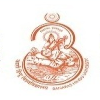How to become an Interpreter and Translator
Overview, Courses, Exam, Colleges, Pathways, Salary

Overview
Who is Interpreter and Translator ?
An Interpreter and Translator are language professionals who facilitate effective communication between individuals or groups speaking different languages. Interpreters convey said content in real-time, aiding conversations at conferences, meetings, legal proceedings, medical appointments, and more. They maintain the tone and context of the original message while ensuring accurate interpretation. Conversely, translators focus on written materials, converting documents, articles, books, and other texts from one language to another while preserving meaning and cultural nuances. Both roles require a deep understanding of languages, exceptional linguistic skills, cultural awareness, and the ability to adapt to various subjects and contexts quickly. Interpreters and Translators play vital roles in fostering cross-cultural understanding and global communication across multiple fields.
Typical day at work
What does Interpreter and Translator do?
- Reads and rewrites written Materials of other languages, followed by rechecking proper use of word meanings, sentence structure, grammar, punctuation, and mechanics.
- Acts as an interpreter on stage in a live discussion, meeting, speech, teleconference, symposiums between two parties who use different languages as a medium of communication simultaneously translating language.
- Listens to statements in one particular language and then translates to other languages and vice versa.
- Plans and executes briefings with each party to pre-plan materials or ideas to discuss upon.
- Rehearse and study the subjects on which discussions can happen before communication between various parties.
- Travel with the party to various locations, regions or countries to interpret local language and translate it to make the team understand.
- Do miscellaneous jobs related to language translation as assigned by the company.
Abilities and Aptitude needed
What are the skills, abilities & aptitude needed to become Interpreter and Translator?
Becoming a successful Interpreter and Translator demands diverse abilities, skills, and aptitudes to bridge language and cultural gaps effectively. Key attributes include:
- Bilingual Proficiency: A high level of proficiency in at least two languages is essential for accurate and fluent interpretation and translation.
- Linguistic Skills: A deep understanding of grammar, syntax, semantics, idiomatic expressions, and cultural nuances in both languages is crucial.
- Active Listening: Interpreters need robust and functional listening skills to understand spoken content in one language and convey it accurately in another.
- Language Prowess: Translators must excel in writing, grammar, and vocabulary to produce well-crafted, natural-sounding translations.
- Cultural Awareness: Sensitivity to cultural differences is vital to ensure translations accurately reflect the cultural context and avoid misunderstandings.
- Concentration and Memory: Interpreters need exceptional attention and short-term memory to retain and relay information accurately in real time.
- Quick Thinking: Interpreters must think quickly and make split-second decisions to convey messages seamlessly.
- Research Skills: Translators often encounter specialized terminology; practical research skills help ensure accurate translations.
- Subject Matter Expertise: Understanding the subject matter enhances accurate interpretation and translation for technical or specialised content.
- Time Management: Both roles involve tight schedules and deadlines; effective time management is essential to meet client needs.
- Adaptability: Interpreters and translators encounter diverse topics and contexts; adaptability is crucial to switch between subjects smoothly.
- Ethical Integrity: Interpreters often deal with sensitive information; maintaining confidentiality and ethical standards is vital.
- Stress Management: The fast-paced nature of interpreting and translating can be stressful; managing stress while maintaining accuracy is essential.
- Multicultural Sensitivity: Understanding and respecting diverse cultural backgrounds helps build rapport and enhances communication.
- Continuous Learning: Languages evolve, and staying updated with language trends, idioms, and cultural shifts is vital.
- Technological Proficiency: Familiarity with translation software, tools, and remote interpreting platforms is increasingly essential.
- Team Collaboration: Interpreters often work in teams, so effective collaboration with colleagues is essential to ensure accurate communication.
- Public Speaking (for Interpreters): Public speaking skills help interpreters convey messages confidently and clearly.
- Proofreading and Editing (for Translators): Strong proofreading skills ensure high-quality translations.
- Client-Centric Approach: Understanding client needs and adapting communication style enhances client satisfaction.
Salary
Salary for Interpreter and Translator?
The salary of a an An Interpreter And Translator is as follows :
- Minimum Monthly Salary: Entry-level Interpreters and Translators or those in junior positions can expect a monthly salary ranging from INR 25,000 to INR 50,000. This salary range is typical during the initial stages of their careers in interpretation and translation.
- Maximum Monthly Salary: Experienced and highly accomplished Interpreters and Translators, especially those working with reputable international organizations or demonstrating expertise in complex subject matters, have the potential to earn a monthly salary ranging from INR 1,20,000 to INR 2,50,000 or even more.
- Annual Salary: The annual salary of an Interpreter and Translator shows considerable variation, ranging from INR 3,00,000 to several lakhs or more. This range is influenced by years of experience, proficiency in multiple languages, and specialization in technical or specialized fields.
- Highest Position and Scope: The pinnacle of achievement for Interpreters and Translators often manifests when they reach senior positions, lead language service teams, or establish their translation agencies. Accomplished Interpreters and Translators with a deep understanding of languages, cross-cultural solid skills, and a proven track record in accurate interpretation and translation can command significant recognition and compensation. The scope for Interpreters and Translators is promising, fueled by globalization and the continuous need for effective communication across languages. As businesses expand internationally, legal proceedings involve diverse linguistic communities, and content requires adaptation for global audiences. Interpreters and Translators are vital in facilitating understanding, promoting accuracy, and ensuring effective communication that contributes to successful cross-cultural interactions.
Pathways
How to become an Interpreter and Translator?
Entrance Exam
Entrance Exam for Interpreter and Translator ?
Courses
Which course I can pursue?
Best Colleges
Which are the best colleges to attend to become an Interpreter and Translator?
Industries
Which Industries are open for Interpreter and Translator?
Interpreters and Translators play essential roles in various industries where effective communication across language barriers is crucial. Some of the sectors that offer opportunities for language professionals include:
- Business and Commerce: Global companies require interpreters and translators to facilitate international meetings, negotiations, marketing campaigns, and cross-border transactions.
- Healthcare and Medicine: Medical interpreters help bridge communication gaps between healthcare providers and patients with limited English proficiency, ensuring accurate medical care.
- Legal and Judiciary: Courts, law firms, and legal departments need interpreters and translators for legal document translation, court proceedings, and legal consultations.
- Government and Diplomacy: Diplomatic events, international summits, and government agencies rely on language professionals to effectively communicate globally.
- Media and Entertainment: Film and television studios, media outlets, and streaming platforms require translation for subtitles, dubbing, and content localization.
- Travel and Tourism: Tour guides, hotels, and tourism agencies often employ interpreters to provide multilingual services for international travellers.
- Education and Academia: Educational institutions, language schools, and research organizations need interpreters and translators to support international students and facilitate research collaborations.
- Technology and IT: As technology transcends borders, tech companies seek interpreters and translators for software localization, user manuals, and technical documents.
- Automotive Industry: Car manufacturers expanding into global markets require translating user manuals, technical specifications, and marketing materials.
- Nonprofit and Humanitarian Organizations: NGOs and humanitarian agencies need interpreters and translators to communicate with diverse communities during relief efforts and development projects.
- Market Research and Consulting: Interpreters and translators contribute to international market research, helping companies understand consumer preferences in different regions.
- Energy and Environment: Companies in the energy sector require language professionals for communication, negotiations, and compliance with international regulations.
- Real Estate and Construction: Multinational real estate projects and property transactions often involve language services to communicate with diverse stakeholders.
- Fashion and Luxury Brands: High-end fashion brands seeking global expansion require accurately translating marketing materials, branding, and product descriptions.
- Sports and Events: International sporting events, tournaments, and conferences often need interpreters for multilingual communication.
- Cultural and Arts Institutions: Museums, galleries, and cultural events benefit from interpreters and translators to engage diverse audiences.
internship
Are there internships available for Interpreter and Translator?
Internships for individuals pursuing careers as Interpreters and Translators can offer valuable real-world experience and help develop the necessary skills. Some potential internship opportunities include:
- Language Service Providers: Companies that offer translation and interpretation services often have internship programs to provide hands-on experience in various projects and industries.
- International Organizations: Organizations like the United Nations, World Bank, and other global institutions sometimes offer internships for language professionals to support their communication needs.
- Government Agencies: Government departments, especially those dealing with foreign relations, immigration, and international affairs, may have internships for language professionals.
- Nonprofit Organizations: NGOs in international development, human rights, and cross-cultural communication might offer internships for individuals with language skills.
- Hospitals and Medical Facilities: Medical interpretation internships can provide experience in healthcare settings, aiding communication between medical professionals and patients with limited English proficiency.
- Legal Firms: Law firms with international clients often require interpreters and translators; interns can assist in legal document translation and court interpretation.
- Educational Institutions: Universities and language schools might have internships in language departments, labs, or international programs.
- Media and Publishing Companies: Interning with media outlets or publishing houses can involve translating articles, subtitles, or scripts.
- Businesses with International Presence: Multinational corporations may offer internships to support their communication needs in various languages and cultures.
- Event Organizations: Interning with event planning companies or conference organizers can involve on-site interpretation during events or conferences.
- Community Organizations: Local community centres, immigration services, and cultural organizations might need language support for their programs.
- Language Technology Companies: Companies developing translation and language learning software may offer internships focused on technology-assisted language services.
Career outlook
What does the future look like for Interpreter and Translator?
The future for Interpreters and Translators is promising due to increasing globalization and cross-cultural interactions. As businesses expand globally and international communication grows, the demand for language professionals to bridge language barriers will continue to rise. Technological advancements, such as AI-assisted translation tools, may streamline routine tasks but are unlikely to replace the nuanced understanding and cultural sensitivity that human interpreters and translators provide. Specialized fields like medical, legal, and technical translation will see sustained demand. Remote interpreting through video conferencing platforms is also expected to become more prevalent. Moreover, the importance of preserving cultural nuances in communication further underscores the enduring need for skilled interpreters and translators. Professionals who maintain proficiency in multiple languages, embrace technology, and stay attuned to evolving language trends will find rewarding opportunities in a wide range of industries, contributing to effective global communication.







